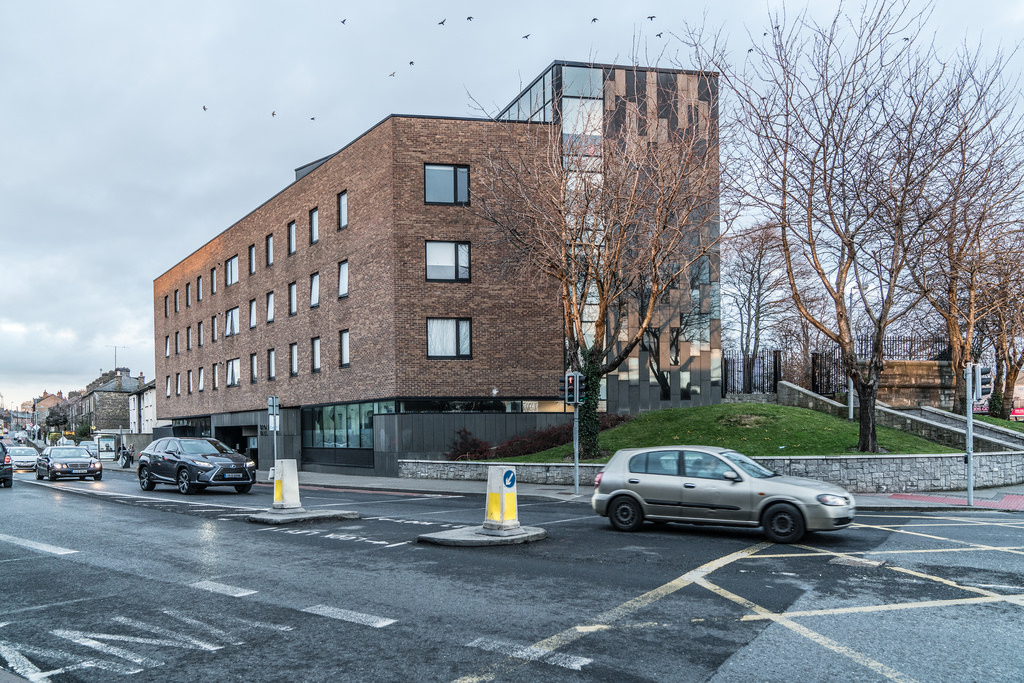Union of Students in Ireland (USI) President Lorna Fitzpatrick and Trinity College Dublin’s Students’ Union (TCDSU) President Eoin Hand have condemned Dublin City Council plans to operate student accommodation as co-living following the Covid-19 pandemic.
Co-living is a communal living system, where residents live in their own bedrooms with shared common areas or community spaces available to residents.
Speaking to Trinity News, USI President Lorna Fitzpatrick stated: “The USI opposes the change of use of any student accommodation. The issue here is not that there is too much student accommodation, it is the type of accommodation that was built. Luxury accommodation is not what students need or can afford.”
Fitzpatrick explained that students “need accommodation that is affordable and of a decent standard”, accommodation that is “fit for purpose” and not luxury at expense to the students. She continued that there is “a need” for further student accommodation, and that it must be affordable for students.
According to a recent Daft.ie report, rents in Dublin have risen 0.5% over the last year, while house prices have fallen 3.8% in the same period.
Fitzpatrick explained that the accommodation was “not built to a standard that most students can afford”. She stated that the union opposes developers’ plans to use co-living in student complexes, because students “need student accommodation”. Fitzpatrick also stated that the USI oppose the introduction of co-living as the union “do not believe” is a suitable option for resolving the housing crisis.
During the Union of Students’ in Ireland (USI) Congress in May, the union voted to lobby for a Covid-19 rent suspension, for the duration of the Covid-19 pandemic.
The motion called for “an immediate” rent suspension for students during the crisis with “no subsequent repayments”, a ban on all Covid-19 caused evictions, which is to “protect the most vulnerable students during this period of uncertainty” and “clarity” from higher education institutions regarding plans for the 2020/2021 academic year to allow students to “make decisions” on their accommodation.
Fitzpatrick explained: “We want the Government to work with Higher Education Institutions to ensure more accommodation is built on and off campus using a proper cost rental model that is affordable. The USI is in favour of publicly funded projects as opposed to the continuation of the National Student Accommodation Strategy policy of relying on the private market.”
Labour councillor Darragh Moriarty also expressed concern about the conversion of student accommodation into co-living spaces on Twitter this week. He described such developments as “pack-them-in shiny bedsits with a few pool tables dotted around“, and said that student accommodation was becoming a “backdoor” for their construction.
Speaking about the proposed change to Trinity News, TCDSU President Eoin Hand said that Moriarty’s comments on the “concentration of student accommodation” neglects to mention that students and others have “consistently struggled to find accommodation due to the inactions of our government.”
Hand continued that the demand for on campus accommodation in Trinity, along with Binary Hub and Kavanagh Court remains the same as previous years, and” they are on track to be filled as normal”.
“The change in legal classification from Purpose-Built Student Space to general ‘co-living space’ seems less like a response to the pandemic and more like an opportunity to further exploit the ongoing housing crisis,” Hand added.
In 2019, Trinity students formed the Cut the Rent TCD campaign group to protest the cost of student accommodation, with similar protests held throughout the last academic year on college campuses throughout the country.
The campaign emerged after many colleges proposed a 4% increase on accommodation costs, resulting in a 12% increase overall in the next three years. Colleges that proposed this 4% increase in accommodation included University College Dublin (UCD) and Dublin City University (DCU).
“Co-living can never be a solution to a housing crisis and it is irresponsible for any government or city council to rely on a private corporation to alleviate the rampant housing issues,” he added.
Hand said: “I agree with the councillor’s comments that co-living or ‘shiny bedsits’ are not the solution and we should be planning for long term solutions and not quick fixes. We have yet to see effective long term solutions proposed by the Irish government.”
“This is not good enough. Third level education should be accessible to every student,” he continued. “Not just those who can afford extortionate rents.”
In his proposal, Moriarty expressed that co-living is not a “long-term” solution to the housing crisis, however, following the Covid-19 pandemic, “it is appropriate to consider a temporary change to this high-quality accommodation”.
Speaking on Twitter, Moriarty said that student accommodation “always had the potential to be a backdoor for co-living”.
He added: “We need long-term housing solutions to address this crisis, not pack-them-in shiny bedsits with a few pool tables dotted around.”
A previous version of this article said that Darragh Moriarty proposed the conversion of student accommodation into co-living spaces, and referred to him as a TD. In fact Mr Moriarty expressed opposition to the proposed conversion, and sits on Dublin City Council. Trinity News apologises for the error.






